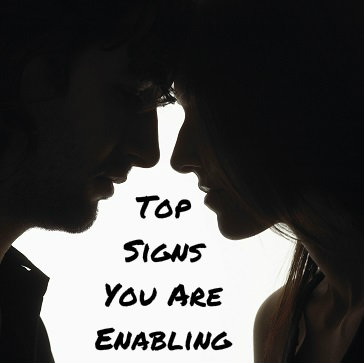How Do I Know If I Am Enabling The Addict In My Life?
Who recognizes that they are enabling? Who enables so intentionally? And yet, if we have addicts in our lives, we must look carefully at how we interact with them. How do we handle a loved one with an addiction? The years of dealing with the addiction of a loved one blind us to our own actions and their consequences. Much of what we think is “helping” can actually be quite harmful.
Signs You Are Enabling
- Do you make excuses for the addict (e.g., lying to an employer to explain why the addict isn’t showing up for work)?
- Do you lie or deceive to protect the addict or your family’s image?
- Do you intentionally overlook bad behavior, saying that the addict “can’t help it?”
- Do you feel like you bear the brunt of consequences for the addict’s behavior?
- Do you continue to allow an addict son or daughter to live in your home despite substance abuse and his or her unwillingness to follow house rules?
- Do you loan or give money to the addict?
- Have you bailed the addict out of jail, or lied to protect him or her from getting in trouble with the law?
- Do you clean up the resulting mess? This can refer to the physical mess the addict makes during or after a binge as well as the messes he or she is making in life.
- Do you make his or her problems your responsibility?
- Are you trying to protect the addict from hitting bottom?
- Do you experience anxiety over the consequences the addict may experience as a result of his or her substance abuse?
- Do you excuse or overlook the addict’s words or actions when drunk or high?
- Do you feel guilty if you don’t help the addict?
- Do you do things for the addict that he or she can do for him or herself?
- Are you unable to say “no” to the addict?
- Do you live in fear of the addict?
- Are you constantly changing your plans to accommodate the addict’s antics, dramas and needs?
How Enabling Hurts Rather Than Helps The Addict
Enabling does not help or aid, rather it communicates the message that the addict’s actions have no consequences, or that if they do, someone (you) will be there to fix it, clean it up or excuse it away. If you are beginning to recognize enabling patterns in your relationship with the addict, know that it is not your fault. Life with a drug or alcohol addicted parent, spouse or child warps us. We are forced to find a means of coping with a situation that gradually grows more and more severe over time. In the beginning, a little helping isn’t an abnormal thing, but this helping subtly morphs, along with the addiction, into a full-blown condition.
What Can You Do Instead Of Enabling The Addict In Your Life?
What is the alternative? Letting go. And it will be painful to do. You may watch the addict lose jobs, get into trouble with the law, live in squalor, sink into poverty, and suffer all sorts of physical, mental and emotional discomforts. It will be as hard on you to watch as it will be for the addict to live through. You will want so badly to do something.
But when you do, you impede the addict from reaching that point at which he or she will become convinced of the need for a change, also known as “hitting bottom.” The longer you enable the addict and the addiction, the longer it will take the addict to pursue recovery. Get the support you need—either through Al-Anon, therapy or other support systems—and then call a halt to the cycle of enabling and addiction.
Learn How To Set Up A Safe Intervention For Your Addicted Loved One!




